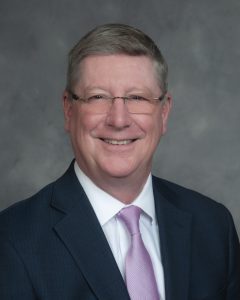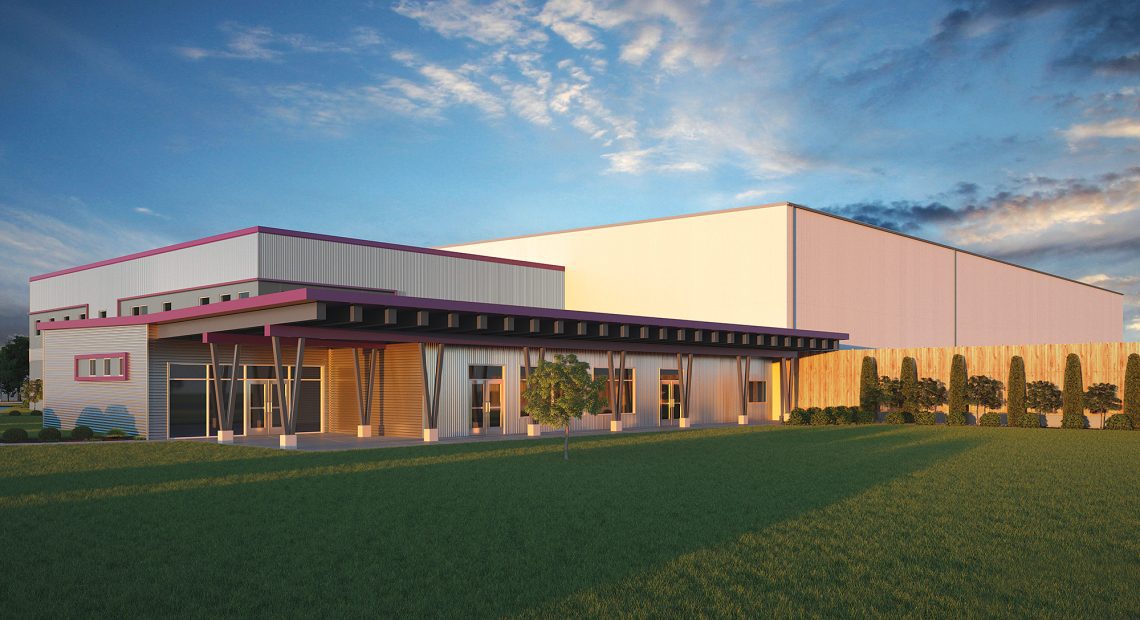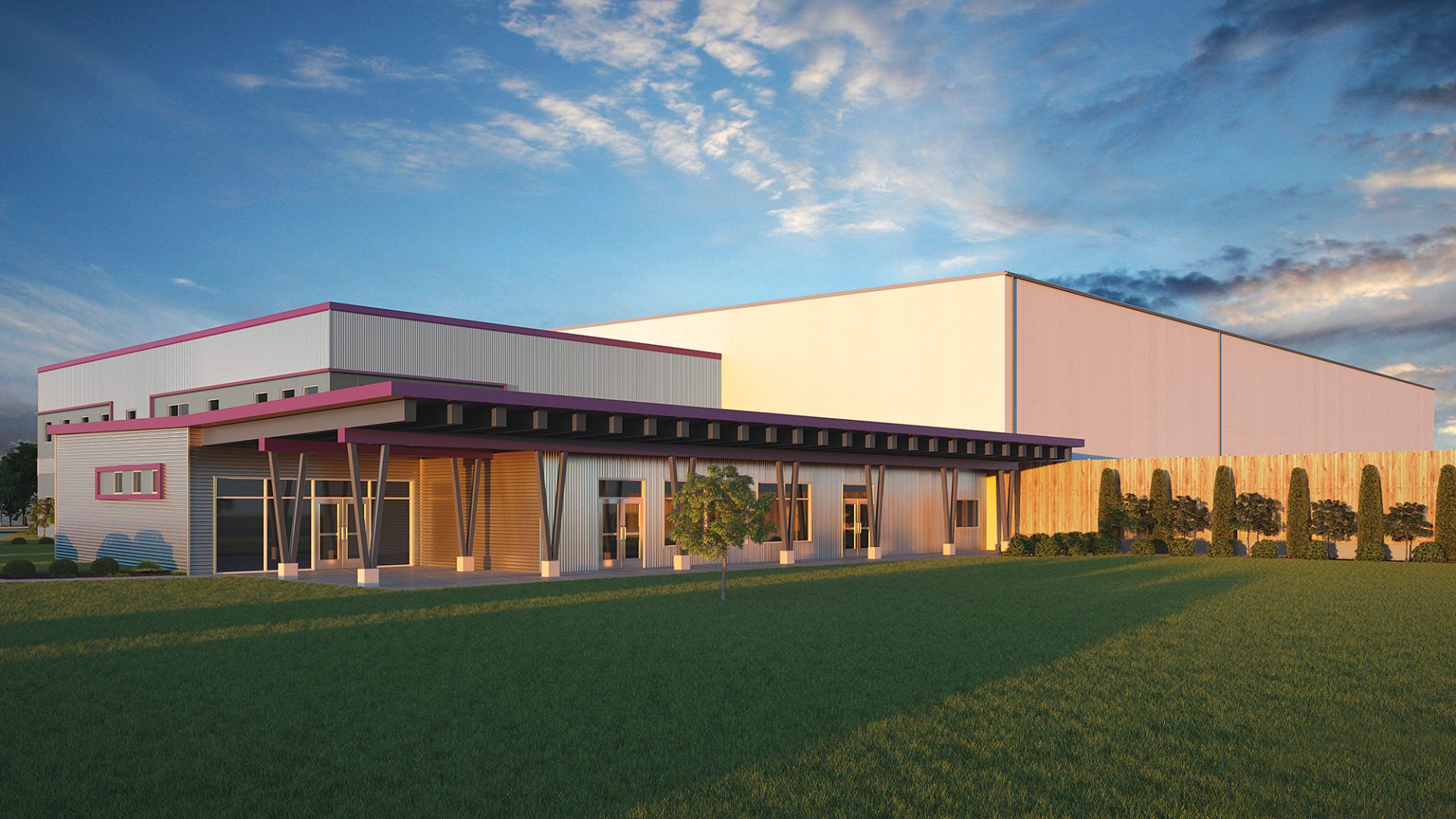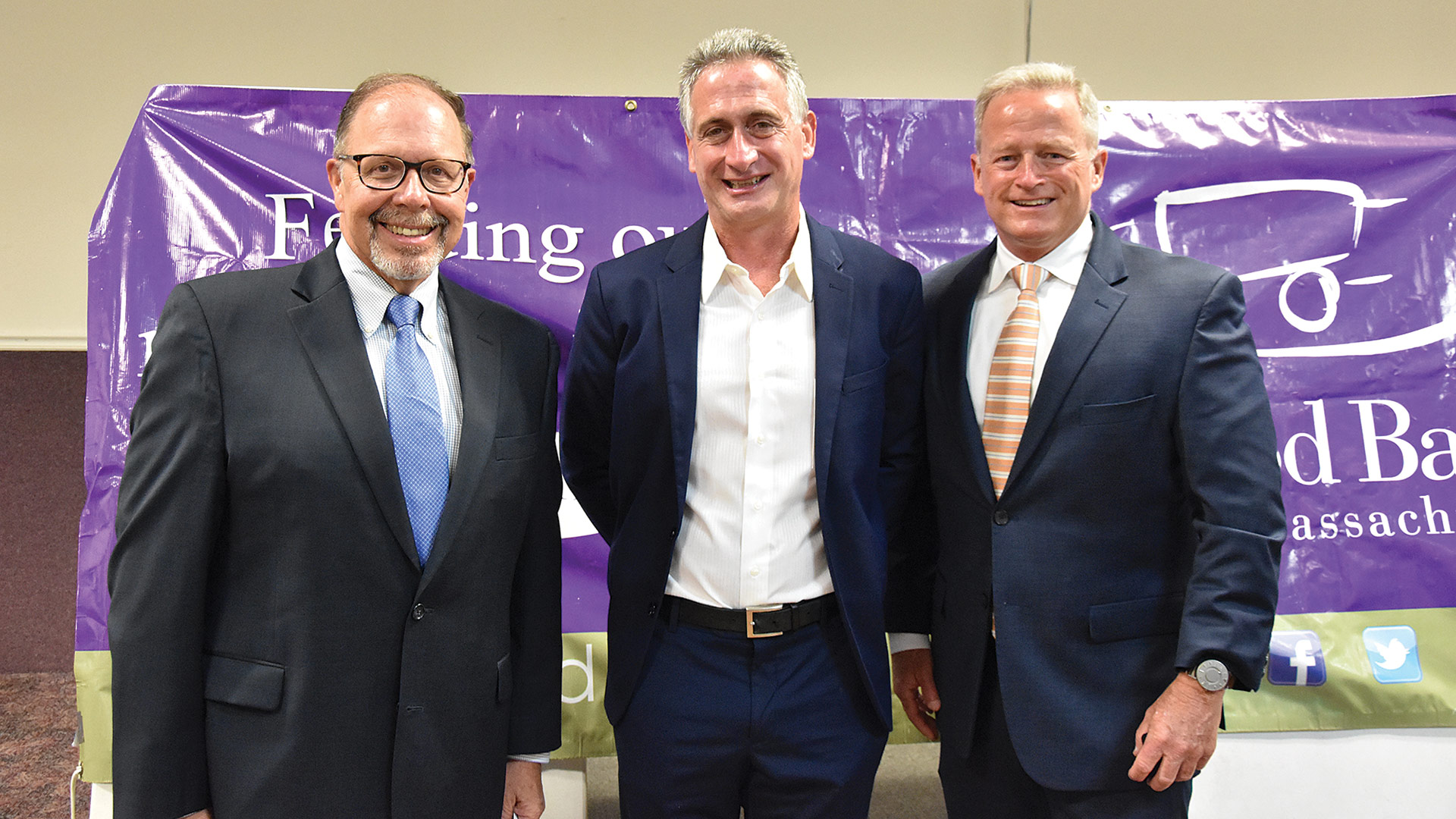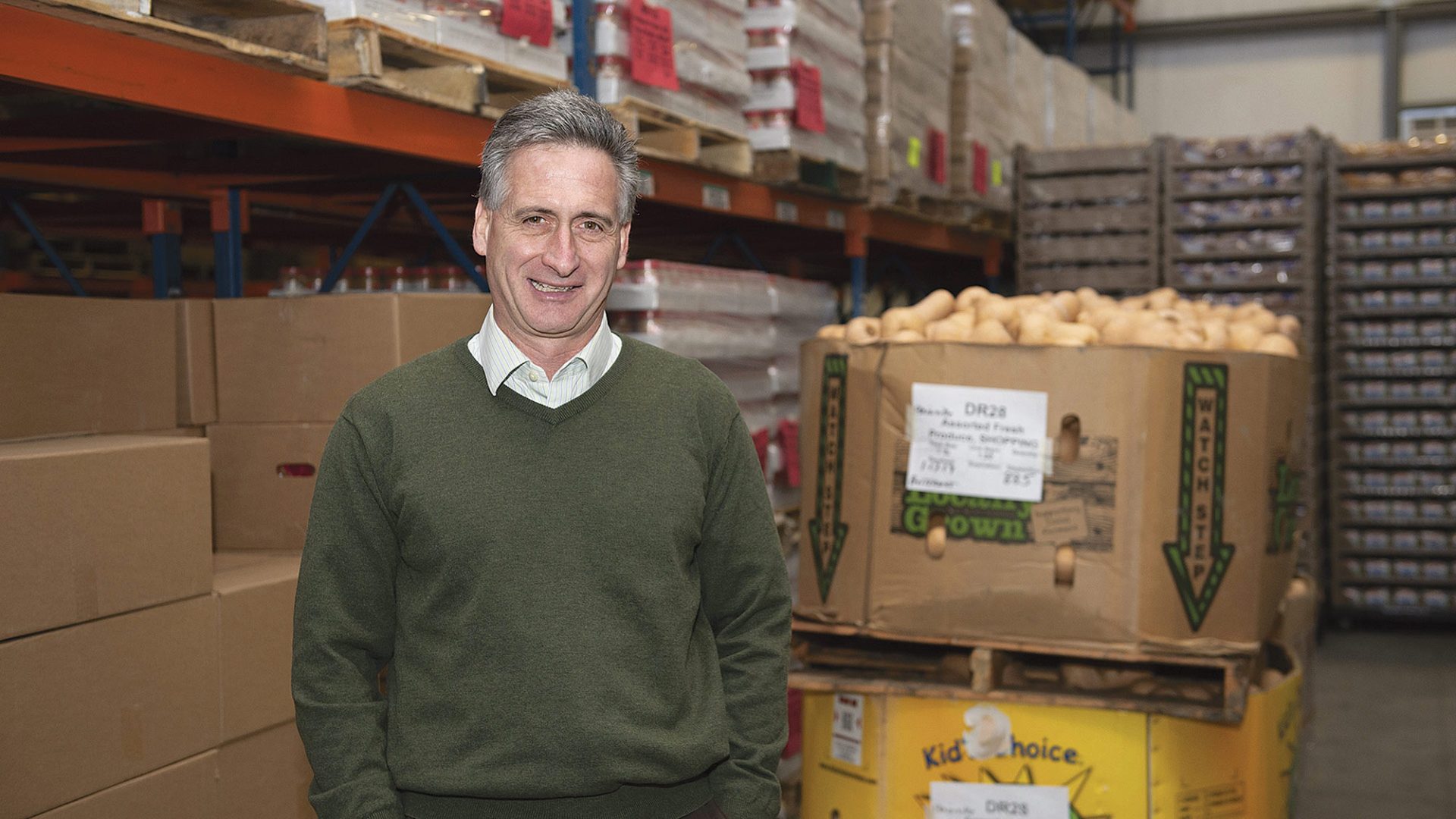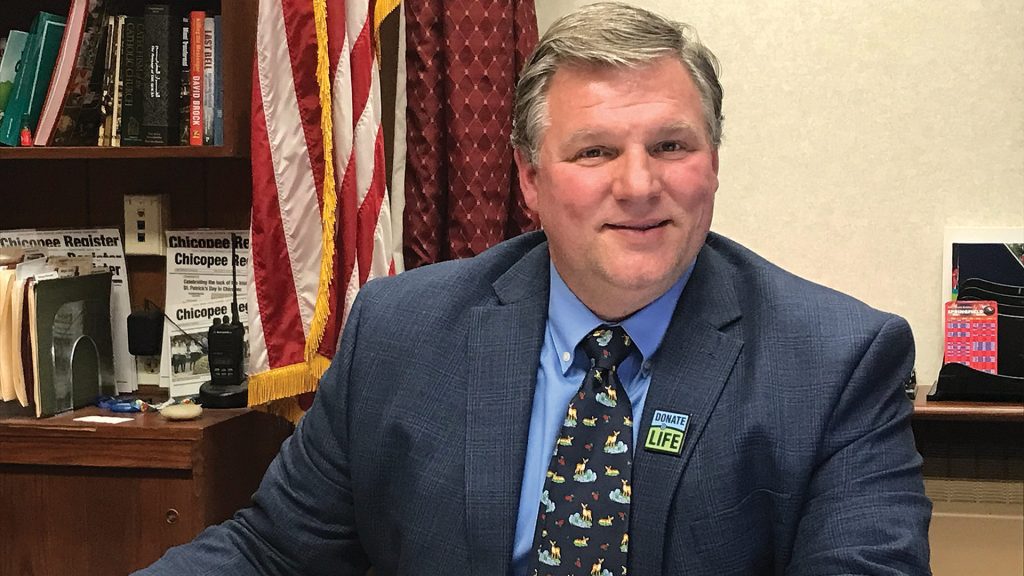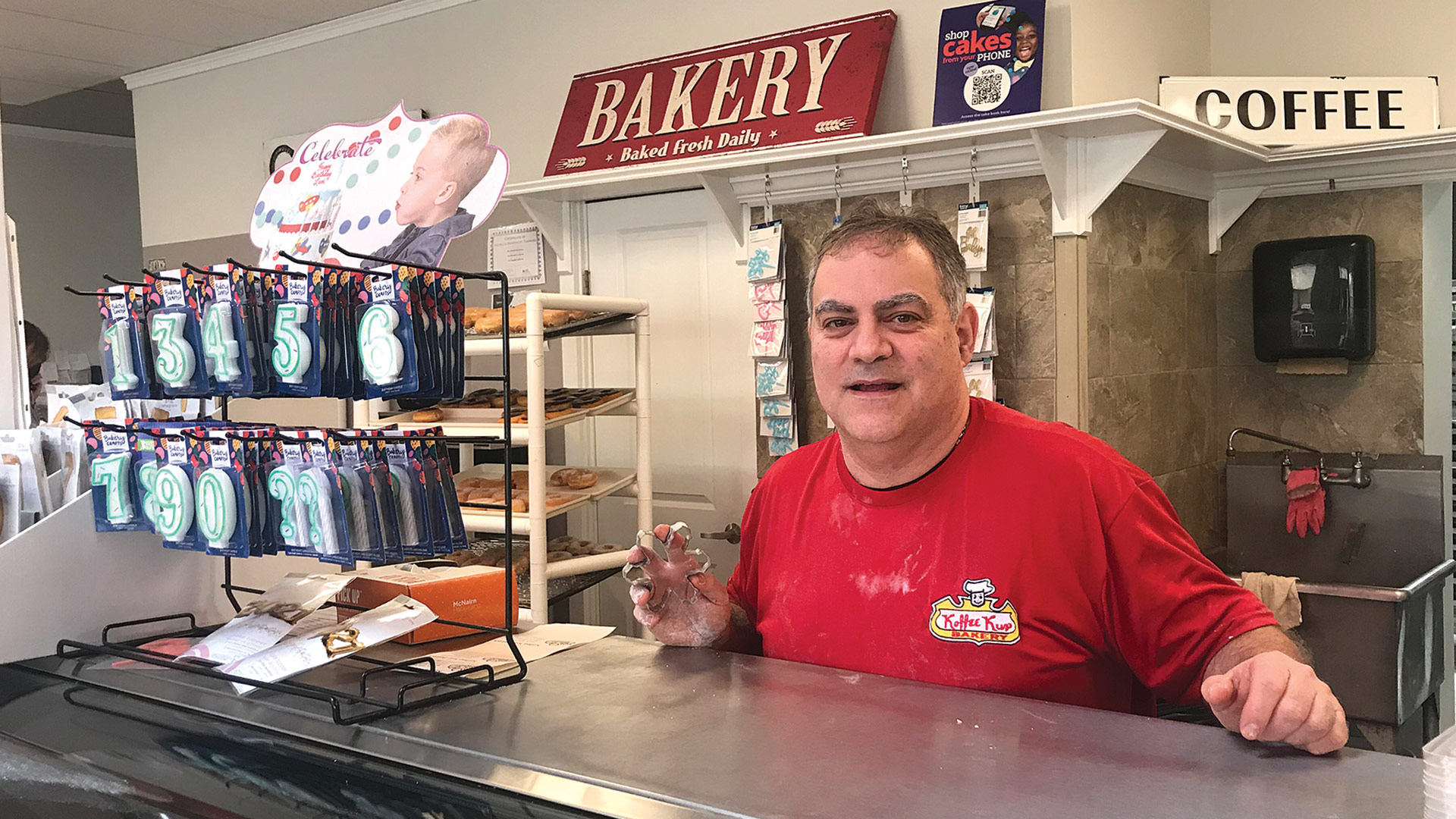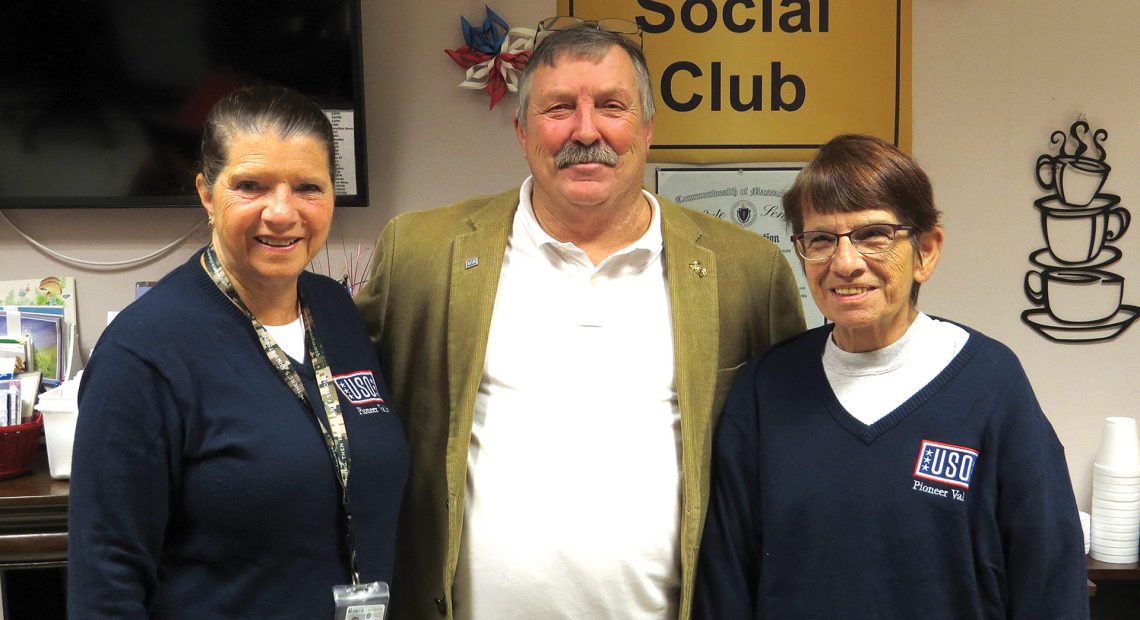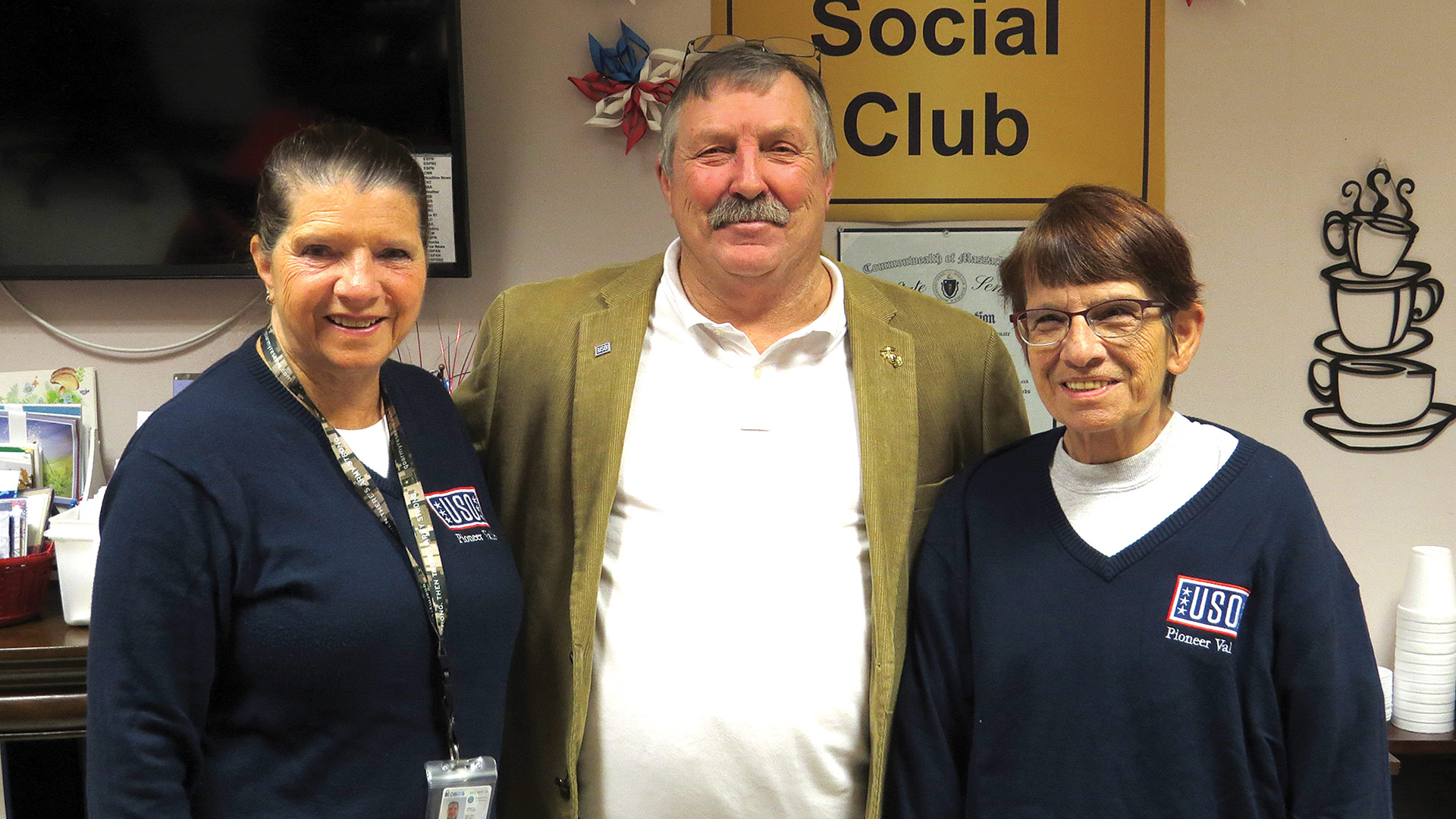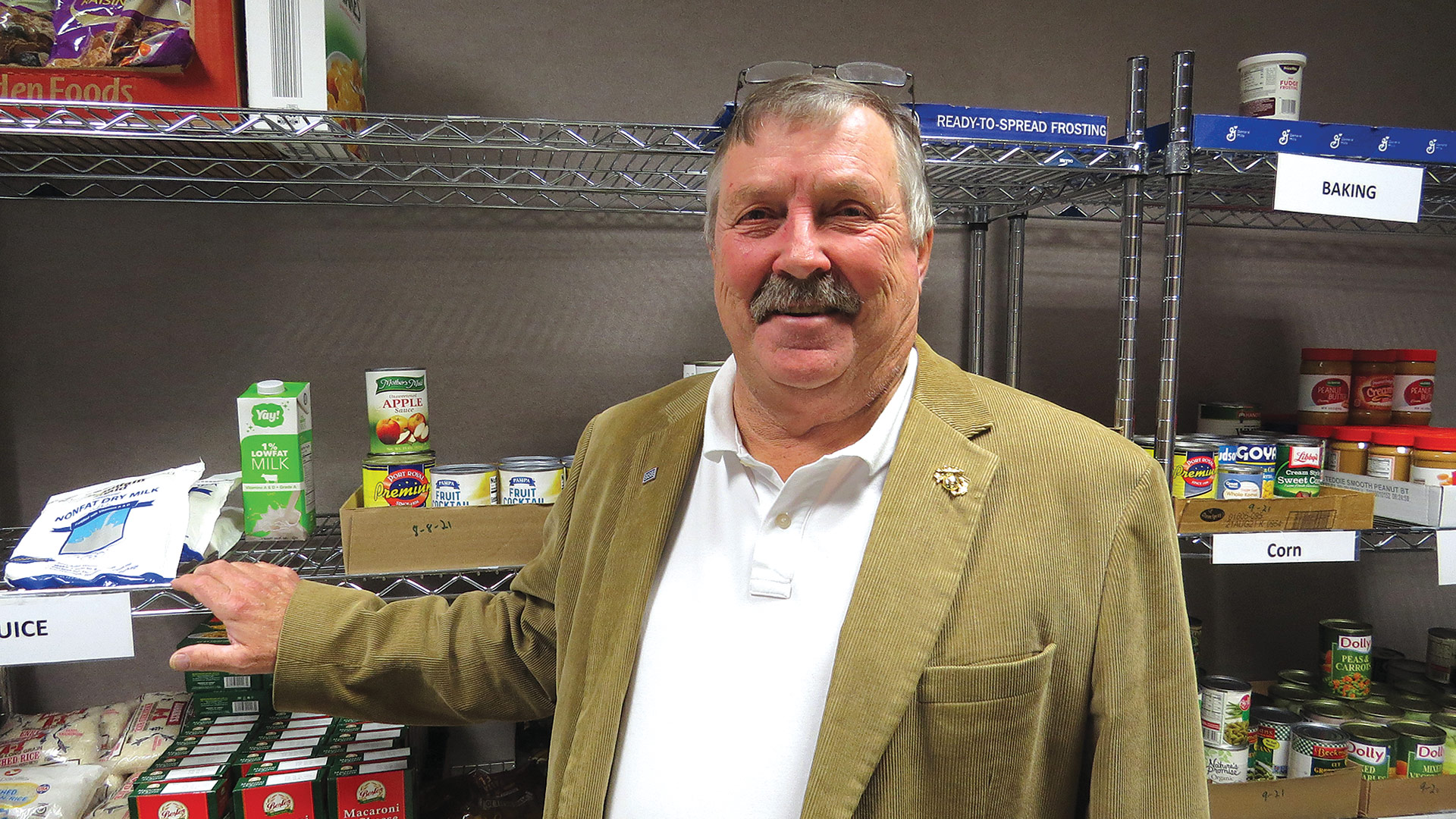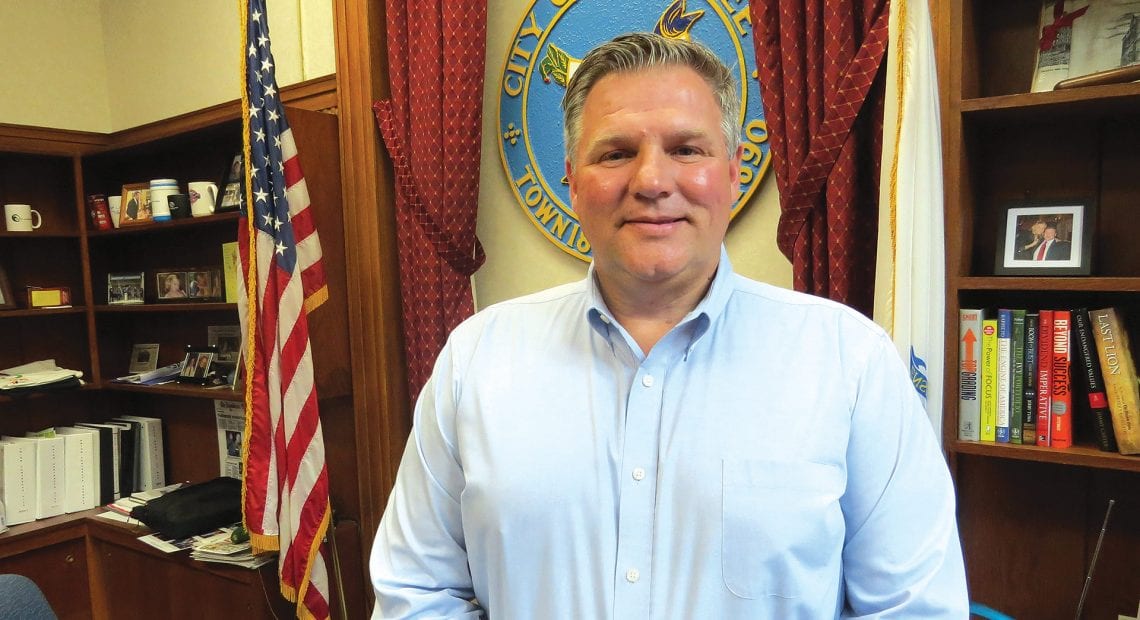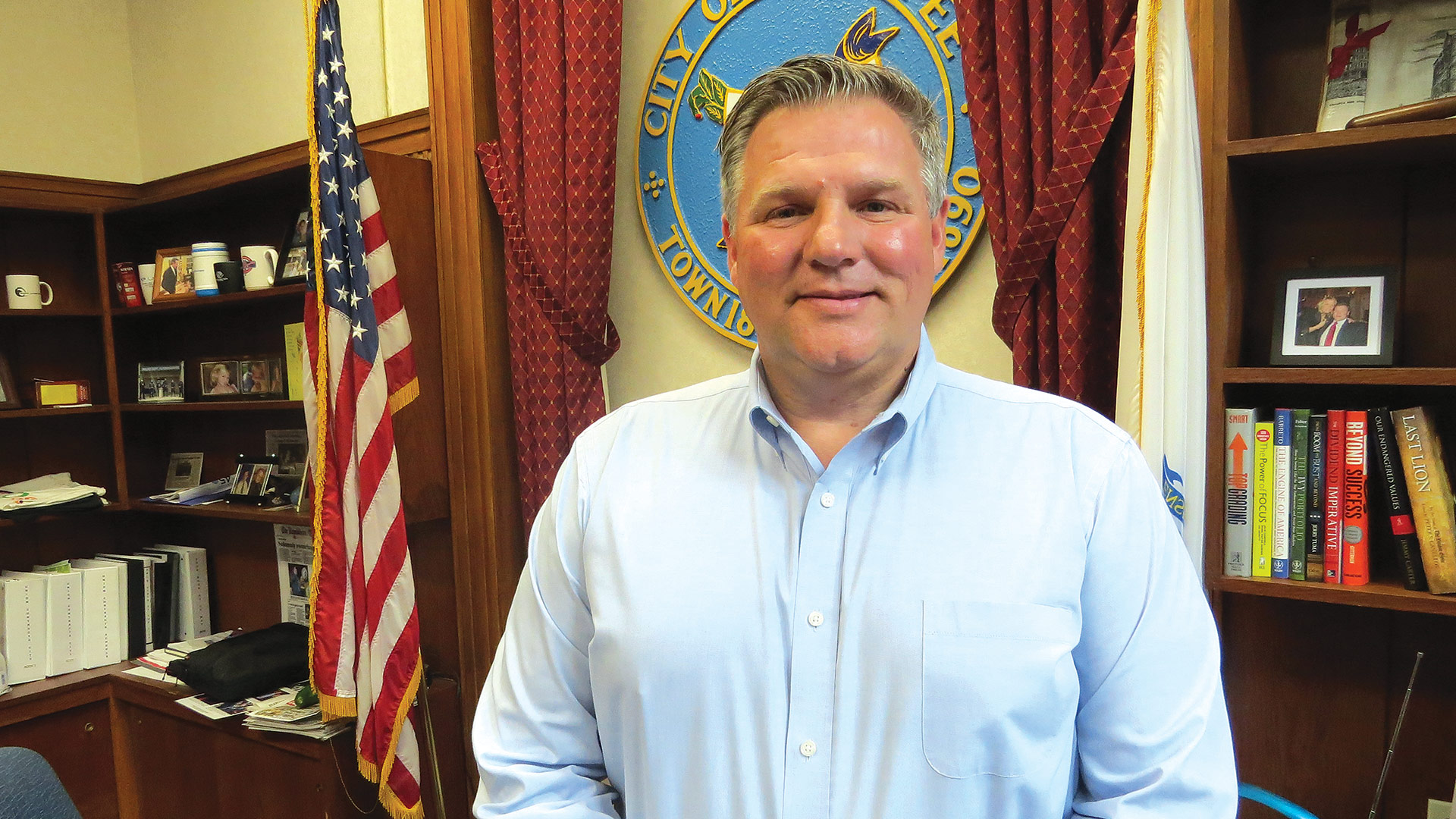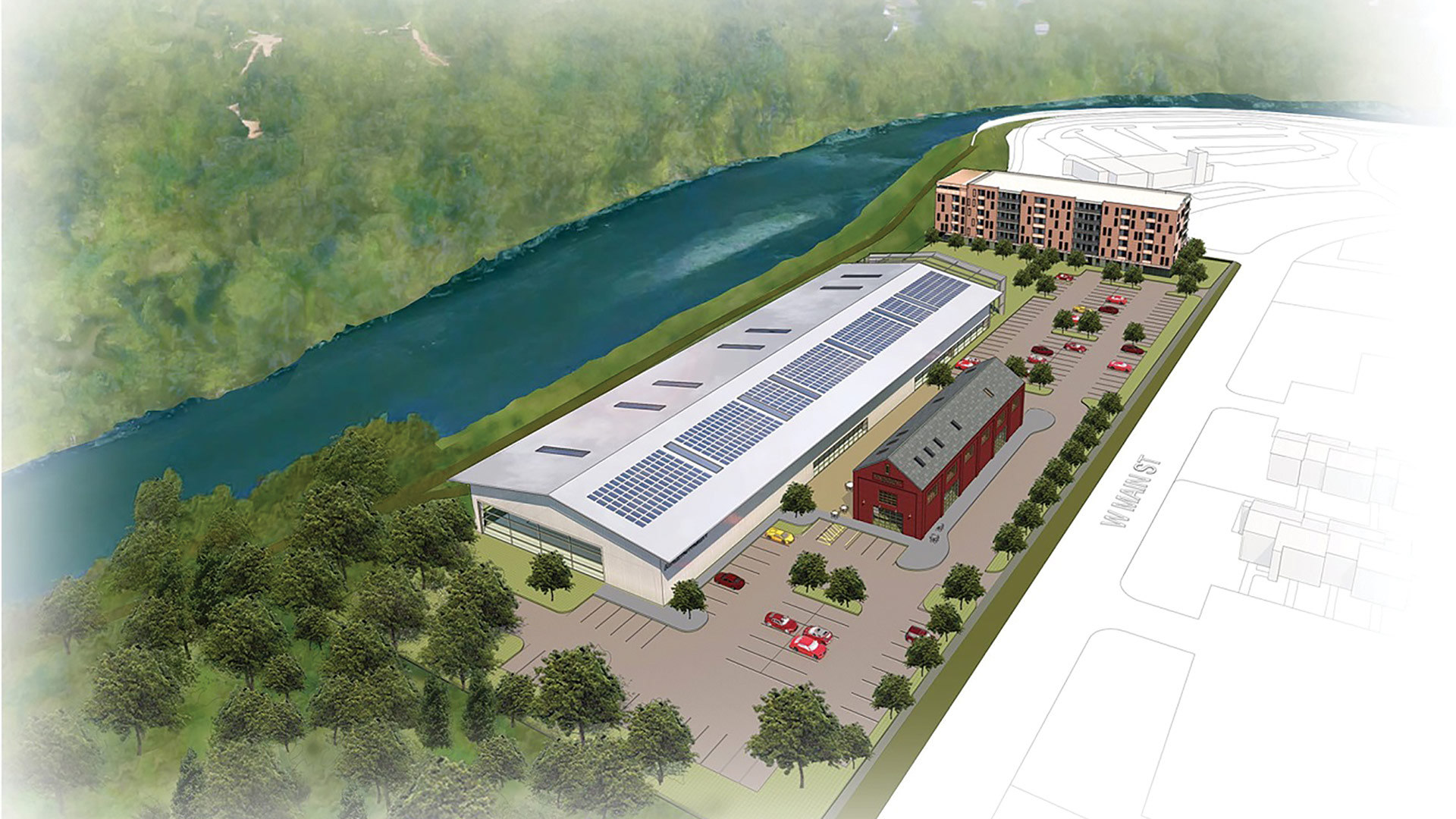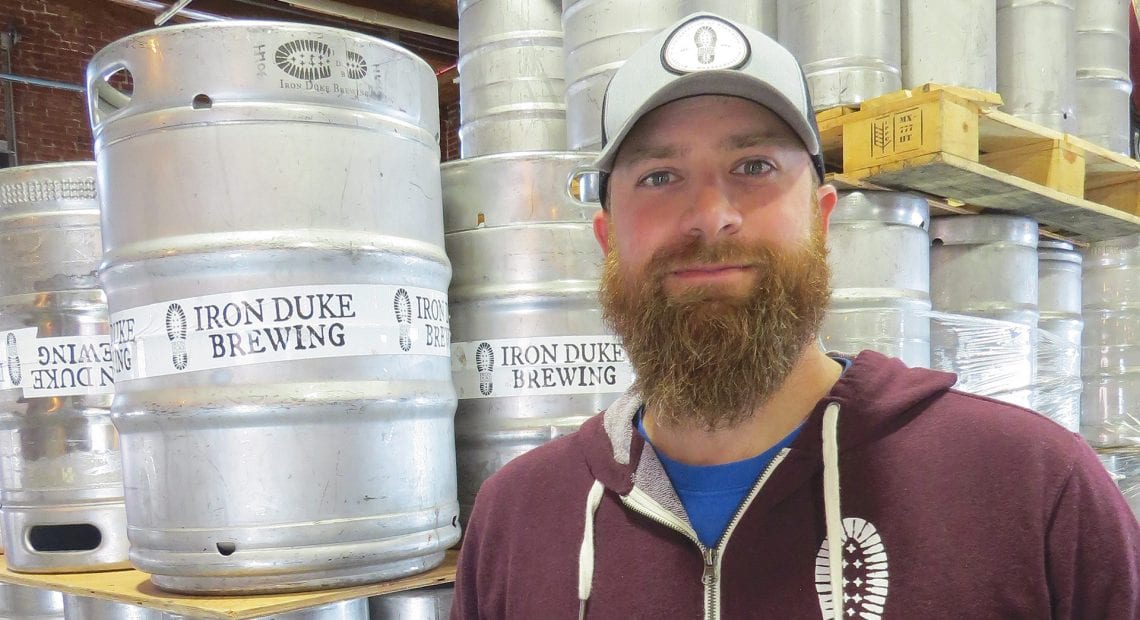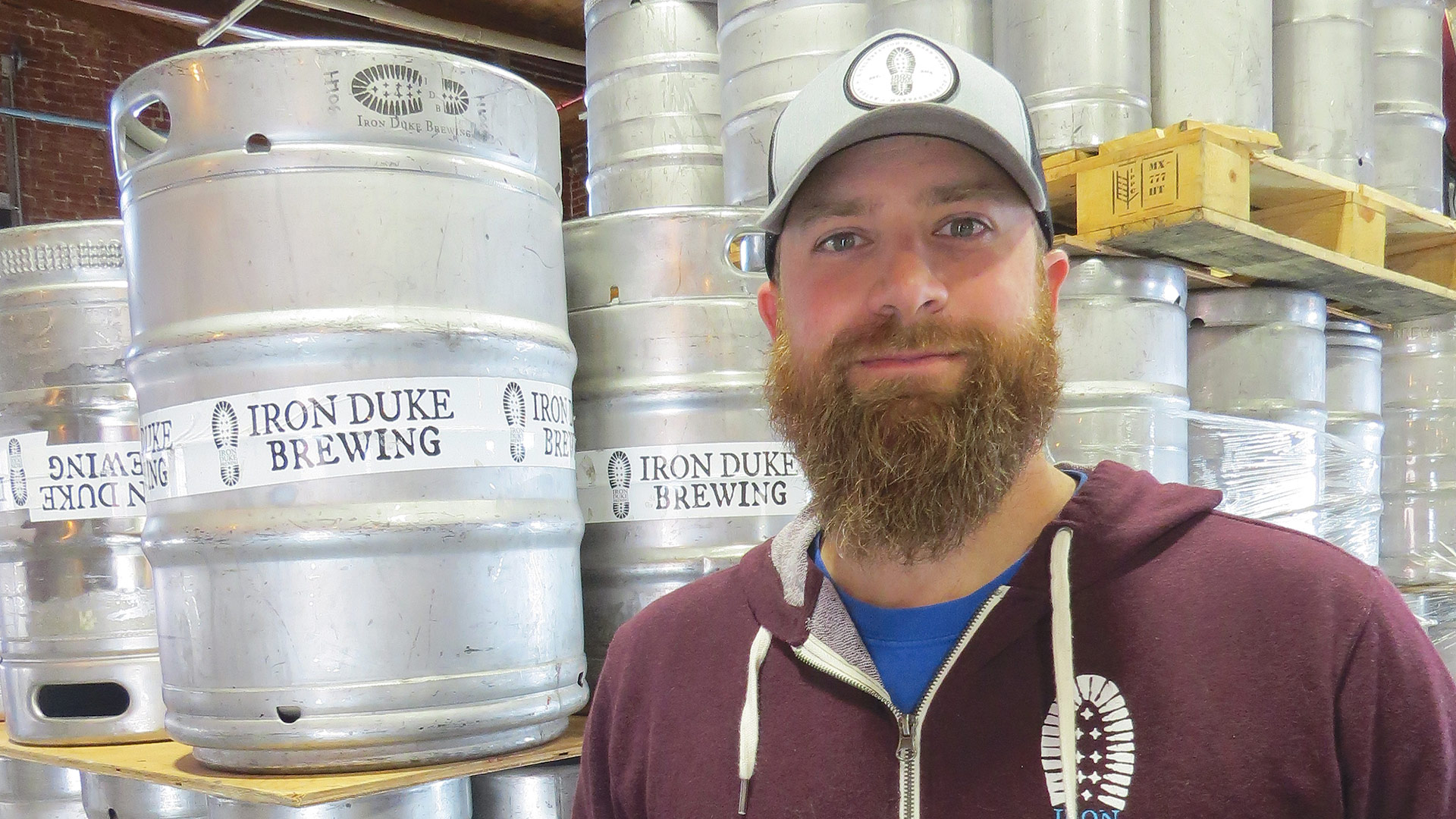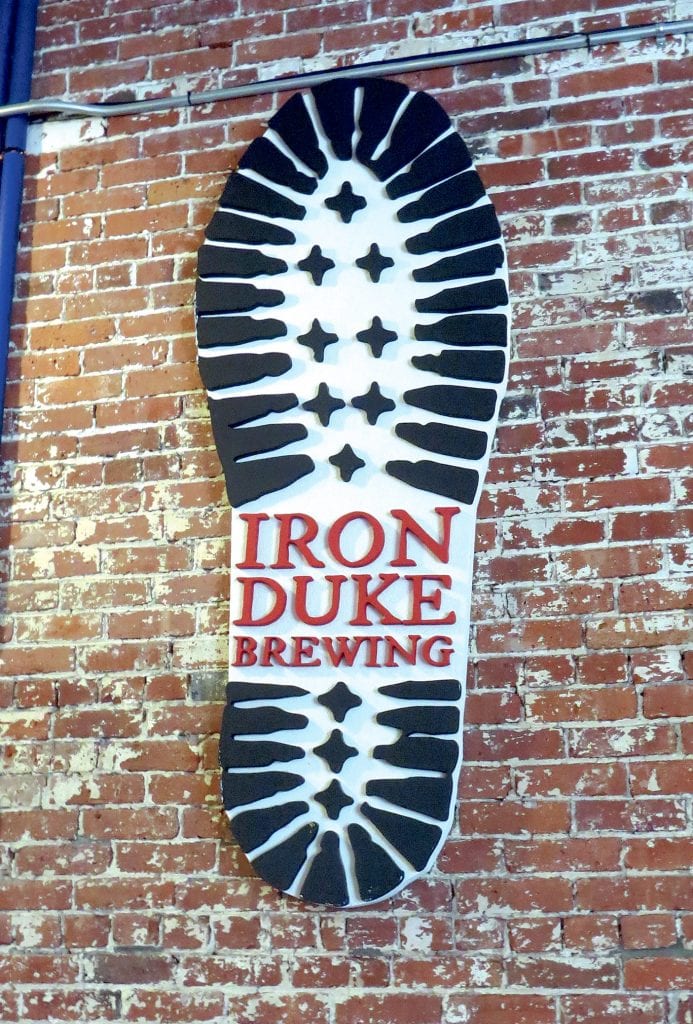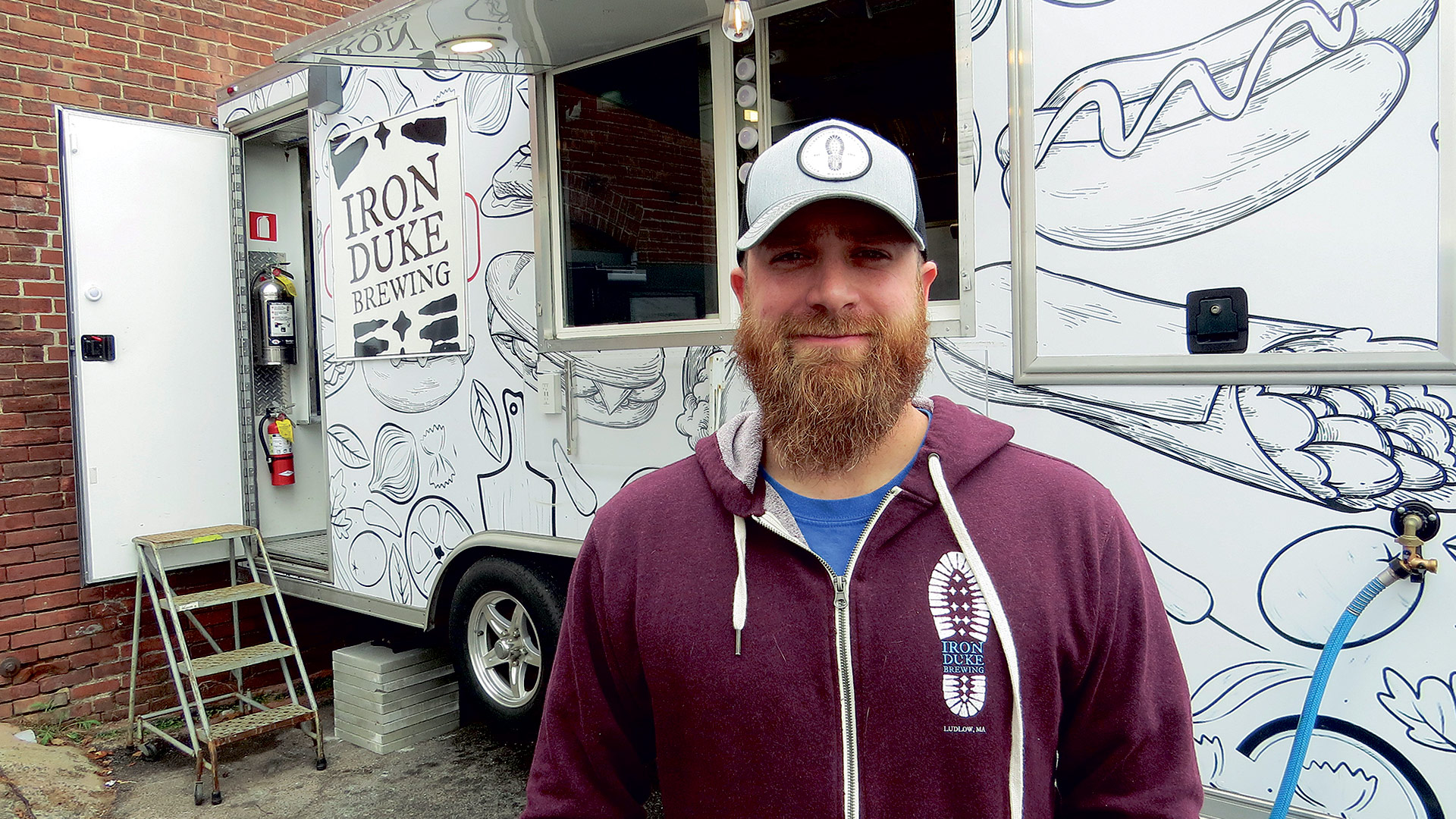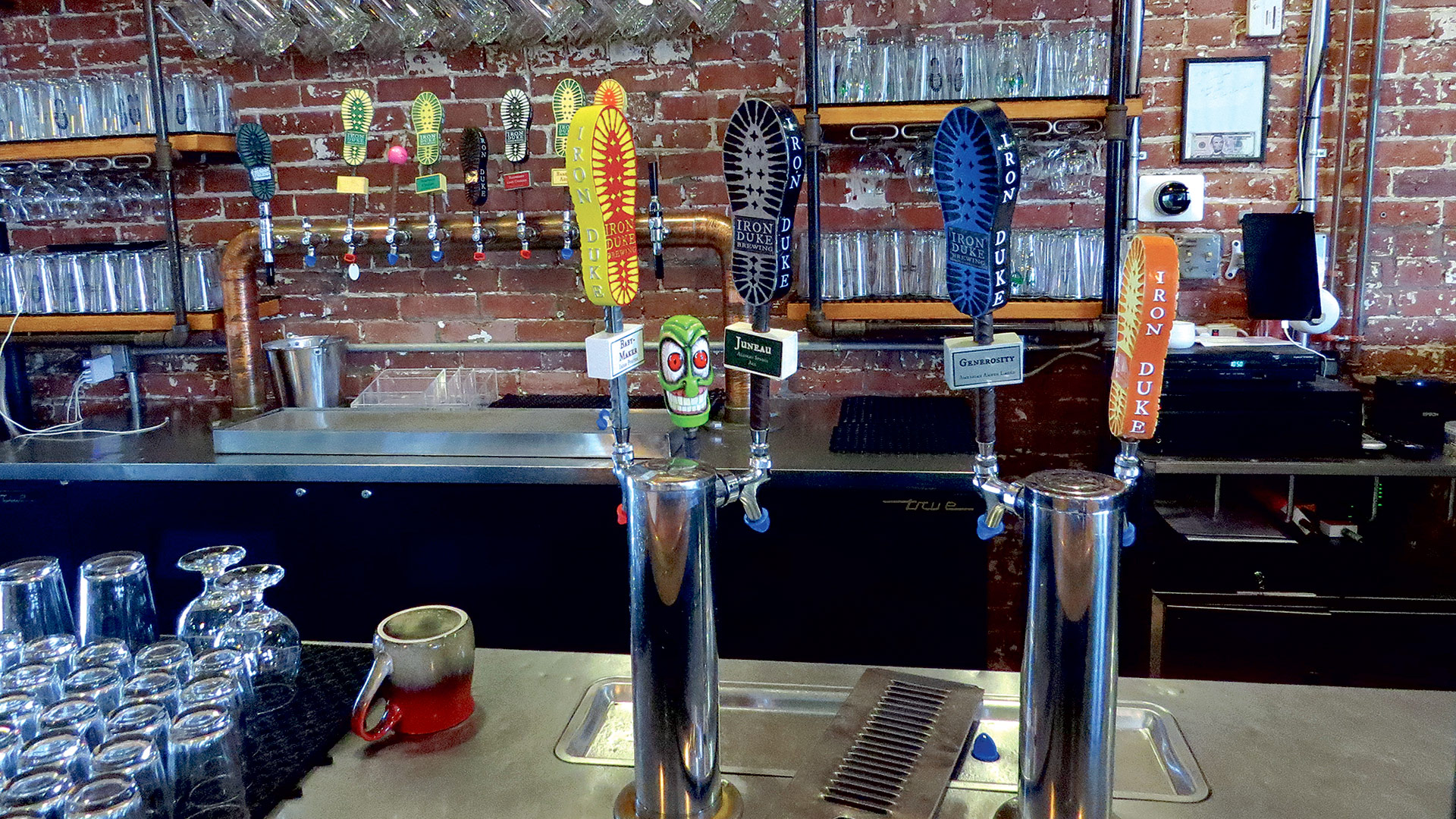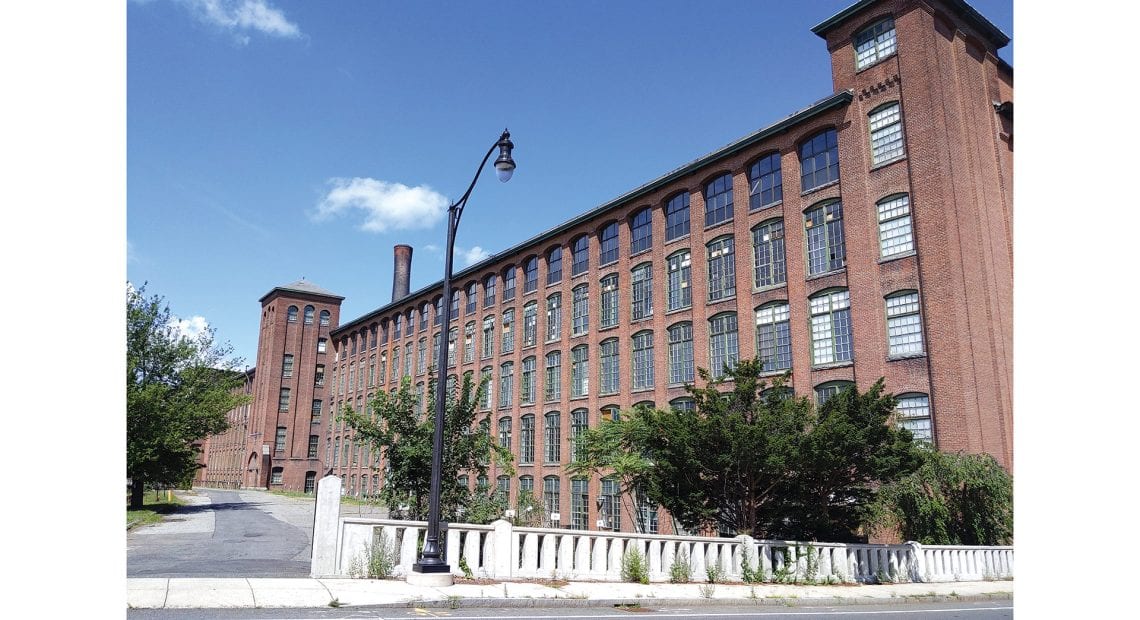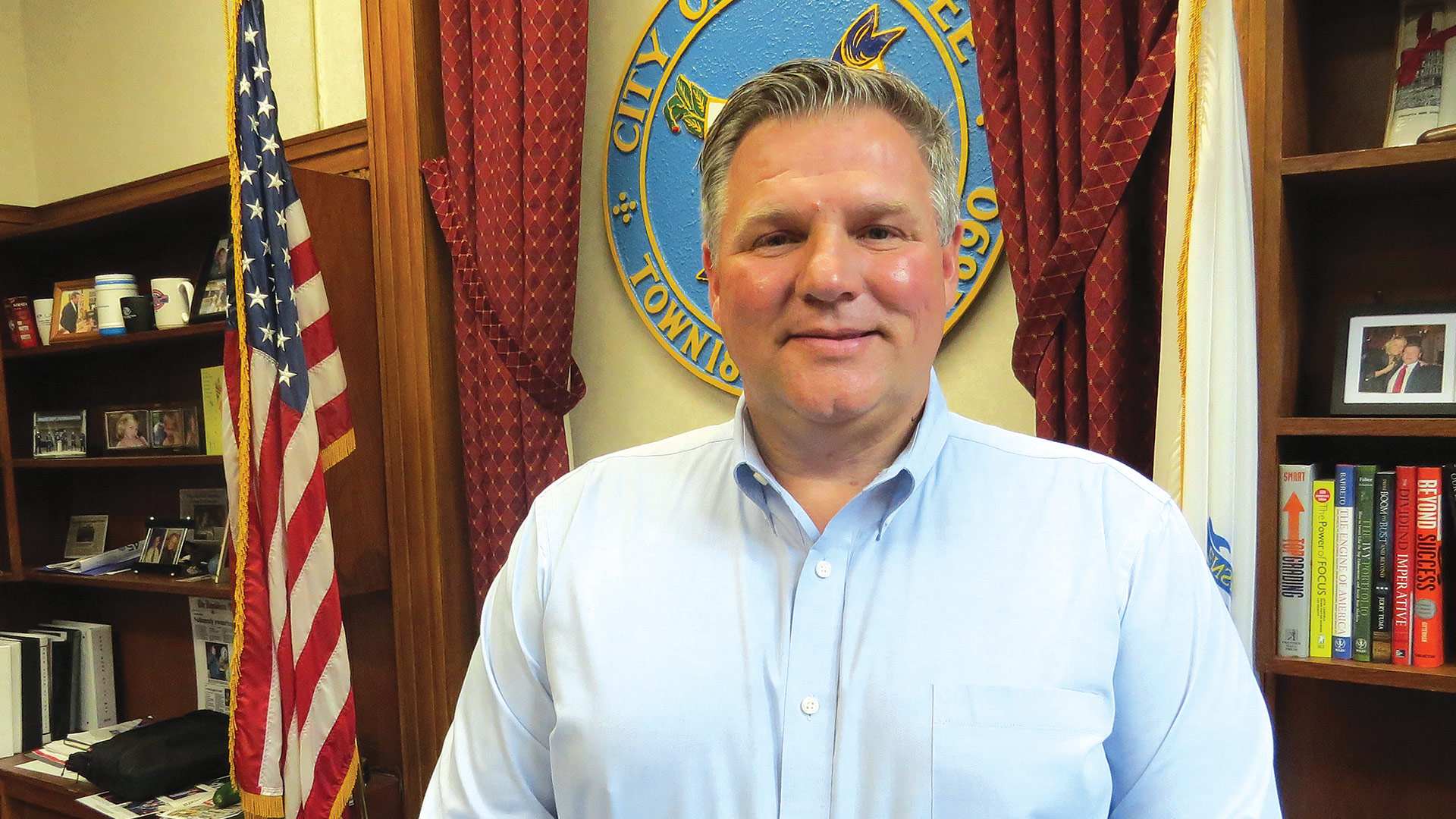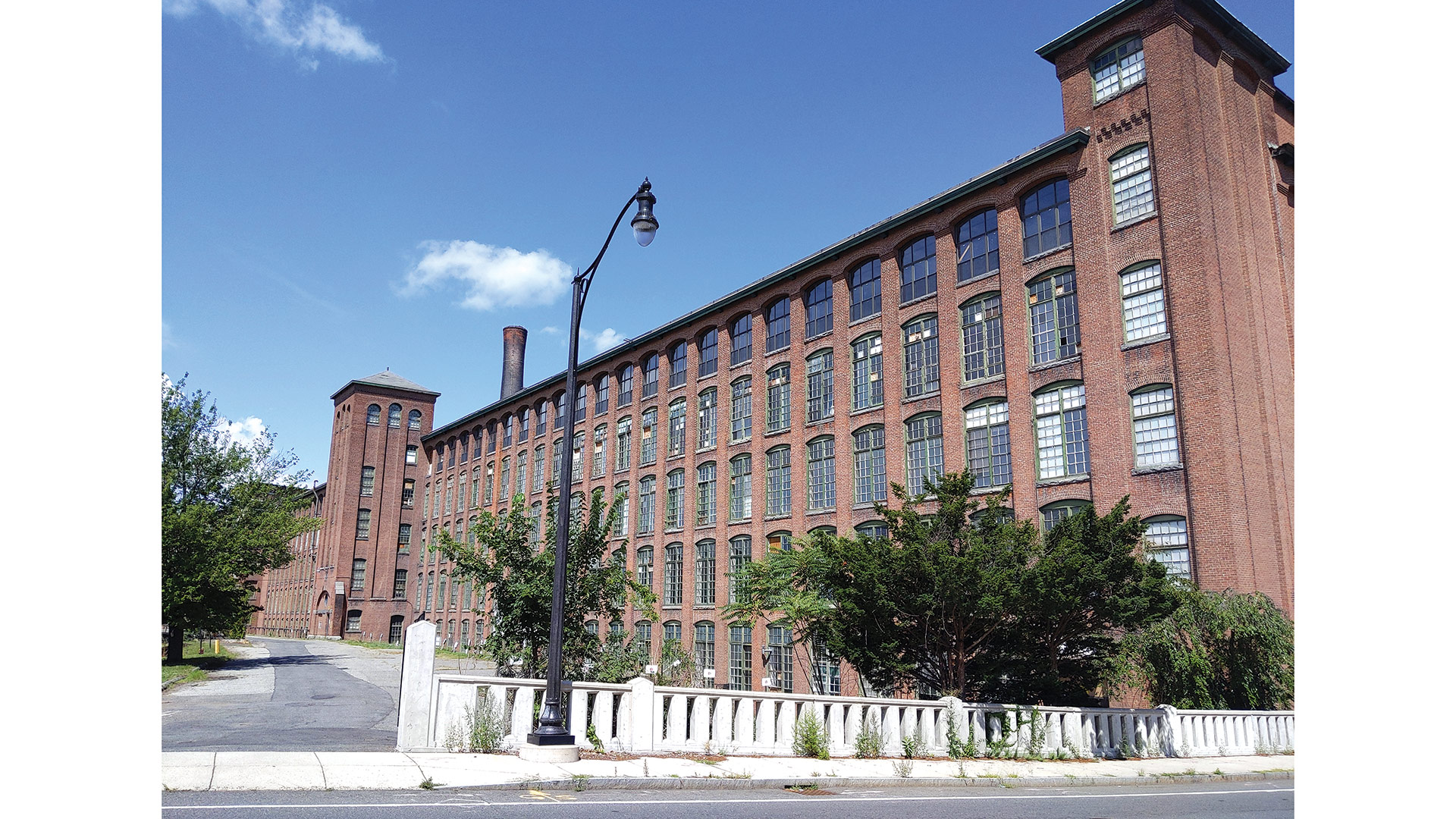Community Spotlight
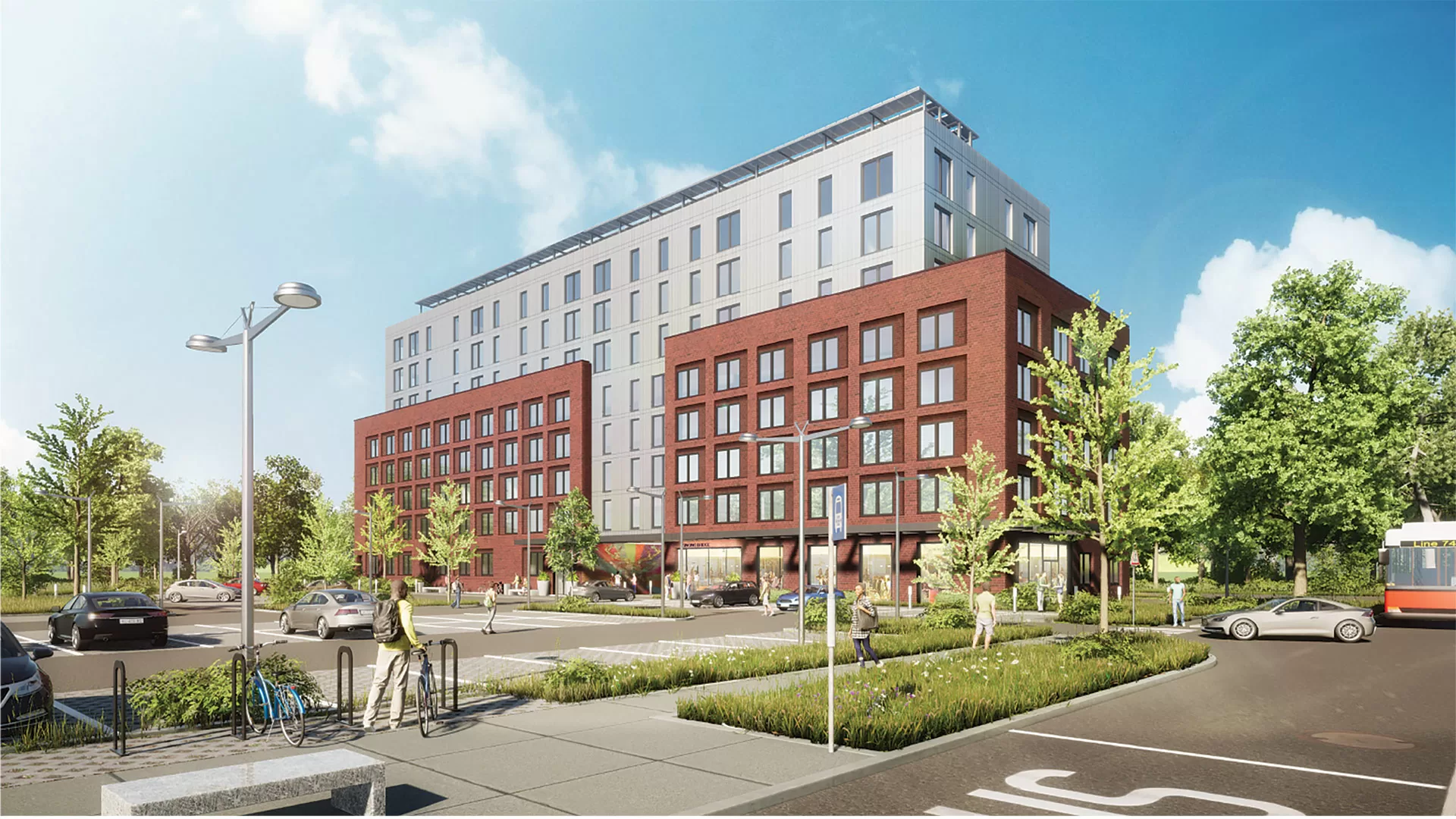
An architect’s rendering of the mixed-use facility planned for the last remaining parcel on the Facemate property, one that will bring more than 100 units of affordable housing to the city.
Like most other cities and towns, Lee Pouliot says, Chicopee has a housing shortage.
It’s evidenced by everything from lengthy waiting lists at apartment complexes and skyrocketing rents to rising prices for single-family homes, said Pouliot, the city’s planner, adding that there are several projects in various stages of development that may bring some relief.
One is long-anticipated new construction at the last remaining parcel from the former Facemate complex, a project that will add an anticipated 106 units of affordable (workforce) housing to the city’s inventory.
“Housing is a huge issue here and around the Commonwealth, so to get construction of 106 new units is very significant for us,” he said, referring specifically to the Facemate project. “And this is new construction from the ground up, so it will be a fairly significant change to that area; we’re pretty excited.”
There’s also progress on the remaining buildings at the former Uniroyal complex, which has been closed and mostly vacant for more than 40 years. Pouliot said the city is close to naming a preferred developer for a project that will make housing the focal point of redevelopment of the former manufacturing buildings.
“Chicopee is really the crossroads of the region. It’s easy to get here from anywhere, which attracts many different kinds of businesses.”
Then there’s the massive — as in nearly 1 million square feet — Cabotville complex in the center of the city. Now vacant for more than four years, the property will likely be going to auction again shortly, said Pouliot, adding that the city is hoping that a buyer experienced with mill conversions will obtain the property and make housing its primary new use.
But momentum on the housing front is just one of the developing stories in this city of more than 55,000 people, the second-largest city in the region.
Indeed, Melissa Breor, director of the Chicopee Chamber of Commerce, cited everything from some new businesses, all minority-owned, in the city’s center — including Island Spice restaurant, specializing in Sri Lankan cuisine, and a new location for Hot Oven Cookies — to renovation of the former city library into space for community events, to progress with her own chamber, which, like most all others in the region, has had to downsize and battle back from the difficult COVID years.
“There’s many exciting things happening here,” said Breor, who grew up in the city, left, and returned to get more involved in the community. Overall, she noted, Chicopee continues to take full advantage of its many assets, and especially its location and accessibility; there’s not one, but two Mass Pike exits funneling traffic into the city, which also has I-91 and Routes 291, 391, and 33 running through it.
“Chicopee is really the crossroads of the region,” she said. “It’s easy to get here from anywhere, which attracts many different kinds of businesses.”
Other assets include Westover Metropolitan Airport and several industrial parks created on surplus land at the massive Air Reserve base, both now overseen by Andy Widor, president and CEO of Westover Metropolitan Development Corp. (WMDC), which operates the airport.
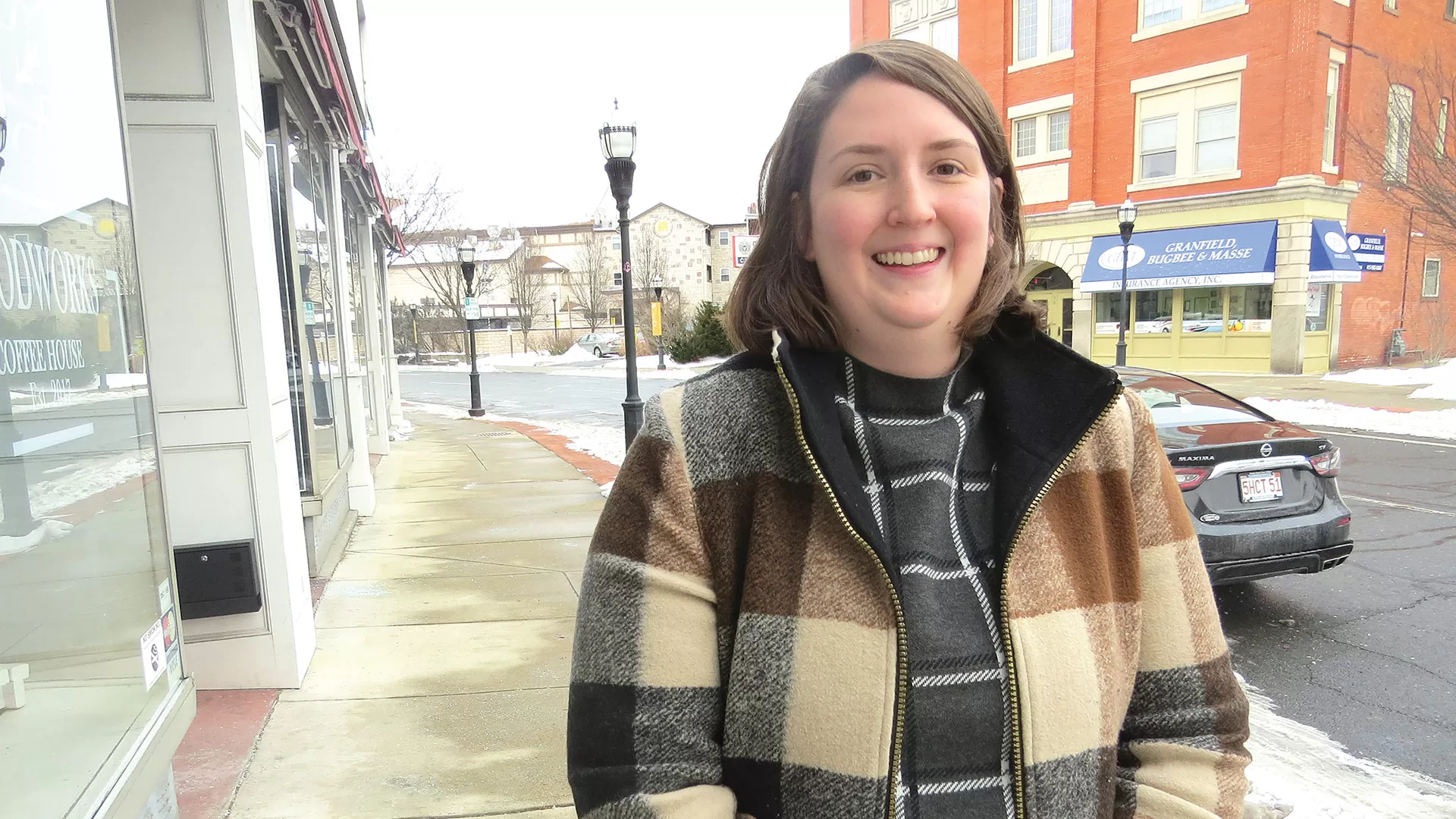
Melissa Breor says Chicopee has many tangible assets, especially its location along several major highways.
He said the airport is somewhat of a hidden gem, and one of its priorities is to make it less hidden. The facility is home to maybe 20 aircraft of various sizes. Meanwhile, many chartered flights, such as those for area sporting events, and private jet flights, including many for the Basketball Hall of Fame induction ceremonies each fall, will use Westover as an entryway to the region. It also hosts public charters to Atlantic City operated through Sun Country Airlines, service that started last August.
“We like to say that the airport connects Chicopee to the world,” said Widor, adding that a recent study undertaken by the UMass Donohue Institute shows that the airport and airparks operated by the WMDC are an “economic-development engine for the region,” contributing more than $2.2 billion in economic output and roughly 8,500 jobs around Massachusetts annually.
For this, the latest installment of its Community Spotlight series, BusinessWest takes an in-depth look at Chicopee and the many forms of momentum in evidence there.
Progress Report
Pouliot told BusinessWest that redevelopment of the Uniroyal complex, once one of the city’s largest employers, has been a story with many twists and turns, with its first chapters written when Ronald Reagan was patrolling the White House.
The latest chapter holds enormous promise for helping alleviate Chicopee’s housing crisis while bringing new vibrancy to the Chicopee Falls section of the city, he said, adding that the city issued a request for proposals for the four remaining buildings on the site last year, received proposals from two different groups, and has seen one of them recommended by an evaluation team.
Negotiations continue with that group on a land-disposition agreement, he went on, noting that, by spring, the city should be in a position to announce both a plan for the property and the group that will carry it out.
“The city’s hope is that a developer gets control of this property that has experience with mill conversion from the ground up. These are challenging projects, and experience is critical in navigating everything from building codes to financing strategies.”
“We’re anticipating mixed use, with a significant housing component,” he said, adding that negotiations continue on the number of units that will be created in what will be a massive undertaking that will likely take several years to complete.
The timeline is much shorter for redevelopment of what’s known as the Baskin parcel at the Facemate complex, a project being undertaken by Brooklyn-based Brisa Development.
Plans call for a mixed-use development which, in addition to the 102 units of workforce housing, will also include a restaurant and a sports complex that will include indoor and outdoor athletic fields, batting cages, elevated running tracks, climbing walls, and outdoor spaces “encouraging community engagement,” according to the Brisa website.
The residential portion of the project, new construction, will commence first, said Pouliot, adding that ground will likely be broken this spring or summer.
As for Cabotville, the property that casts a huge shadow over the city’s center, literally and figuratively, Pouliot said the property has had several owners over the past few decades, with none of them able to advance projects to create housing or other uses. The property is vacant — the last remaining commercial tenants were evicted as the building was closed due to code violations in 2022 — and secure, but the clock is certainly ticking.
“From an engineering perspective, it’s structurally sound, but the longer a building sits vacant, the greater the risk of its condition deteriorating,” he said, adding that, while there has been discussion of the city potentially acquiring the property, as it did with the Uniroyal complex in 2009, officials are leery about taking on another huge development project until the Uniroyal project advances.
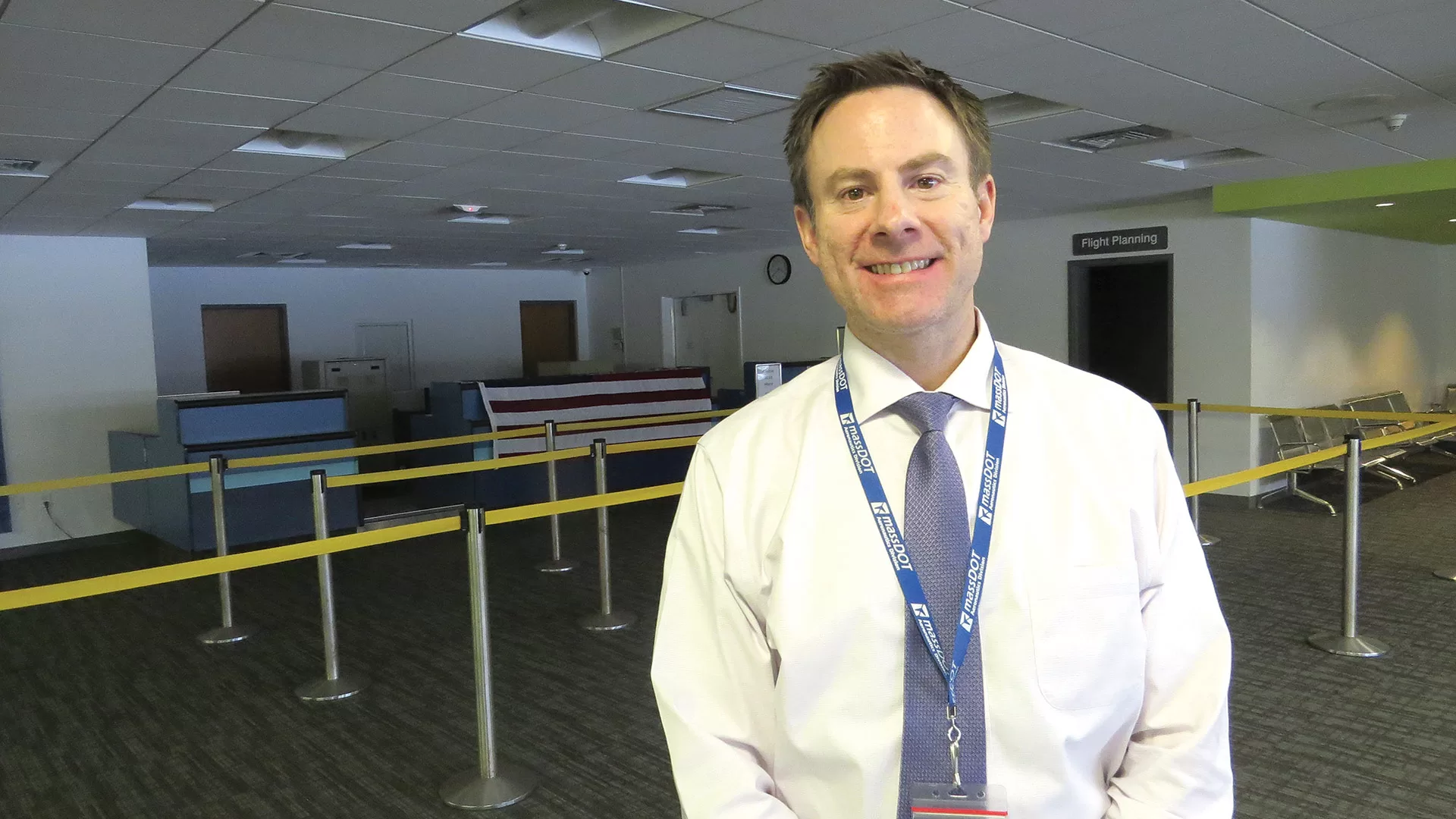
Andy Widor is working to build out all aspects of Westover Airport.
“The city’s hope is that a developer gets control of this property that has experience with mill conversion from the ground up,” Pouliot told BusinessWest. “These are challenging projects, and experience is critical in navigating everything from building codes to financing strategies.”
While those initiatives unfold, some municipal projects are moving forward as well, he said, referencing long-awaited work to renovate the former library, closed since 2004.
Bids have been received for the project, estimated at $18 million, with the goal of transforming it into programming space to host everything from Chamber of Commerce business training events to programs staged by nearby Elms College. It will also be the permanent home of the Center Fresh Market, a farmer’s market that traditionally sets up in the plaza outside the building.
The city is also close to bidding the next phrase of City Hall renovations, he said, adding that this phase involves renovation and modernization of office suites.
Changing Landscape
As she talked with BusinessWest in the chamber’s tiny office on Center Street, just a few hundred yards from City Hall, the library, and Cabotville, Breor said Chicopee is a community seemingly in a constant state of change.
Whether it’s new businesses, many of them national chains, on Memorial Drive, the city’s main commercial throughfare, or new or growing local entrepreneurial ventures, such as the new tenants just a block away on Center Street in property redeveloped by the Valley Opportunity Council — Hot Oven Cookies and Island Spice — the business landscape is always changing, she said.
Chicopee at a Glance
Year Incorporated: 1848
Population: 55,560
Area: 23.9 square miles
County: Hampden
Residential Tax Rate: $14.76
Commercial Tax Rate: $31.78
Median Household Income: $35,672
Median Family Income: $44,136
Type of Government: Mayor; City Council
Largest Employers: Westover Air Reserve Base; J. Polep Distribution Services; Callaway Golf Ball Operations; Dielectrics; MicroTek
* Latest information available
Breor came to the chamber in the summer of 2022 after working at UMass and, before that, with the Greater Northampton Chamber of Commerce as Hampshire County tourism coordinator. Desiring to return home — she grew up in Chicopee Falls — she originally applied for an open position at the chamber handling marketing. But while interviewing for that job, the director’s position became open, and she adjusted her sights.
She now presides over a chamber, that, like most all others in the region, has become smaller in just about every way, from the size of its office to the number of members (currently about 250) to the size of its staff — at present, it’s just Breor and a one-day-a-week staffer focused on marketing and social media.
But the chamber remains a powerful force for a business community that is diverse in every sense, she said, whether it’s providing technical assistance, staging networking events, or collaborating with other area chambers on larger projects.
One such event, slated for March, will benefit the Food Bank of Western Massachusetts (recently named BusinessWest’s Top Entrepreneur for 2023). The rice-and-beans drive and fundraiser will also involve the Springfield, Holyoke, Westfield, ERC5, and West of the River chambers, said Breor, adding that there are other collaborative efforts on the calendar or in the planning stages, including legislative events and a softball tournament to be undertaken with the Holyoke chamber to be called the Battle of the Bridge.
At Westover Airport, meanwhile, Widor is working to build out all aspects of that operation, from planes based there to flights in and out, and he believes there is great potential to do so.
Renovation of several hangars on the property, an ongoing initiative, presents the opportunity to house more planes of all sizes, including the largest private jets, at the airport, he noted.
Meanwhile, the airport’s location — close to Springfield and Hartford as well as the many colleges in the region — is an asset, as is the relatively new pilot-controlled lighting at the facility, which enables it to remain open for landings 24 hours a day.
Widor said the airport, which shares runways with the Air Reserve base, serves a number of businesses and institutions — bringing guests for Hall of Fame induction week and headliners for performances at MGM Springfield facilities to the region, for example, as well as organs for transplant at Baystate Medical Center — and there is considerable room for growth.
Chicopee’s leaders believe the same is true for the city — and its diverse business community — as a whole.




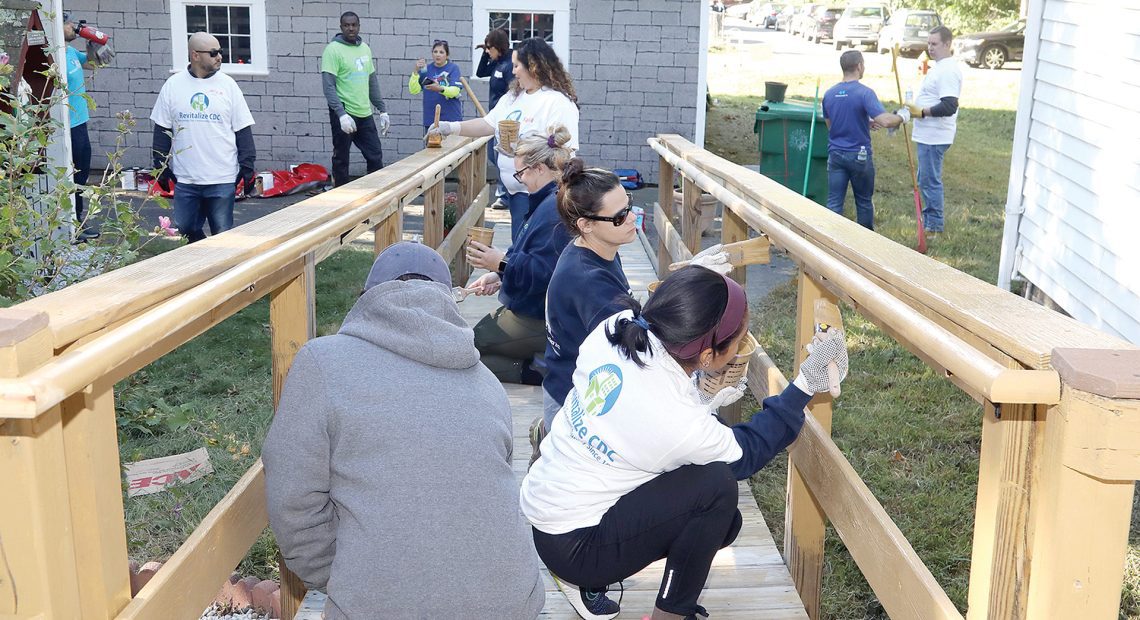
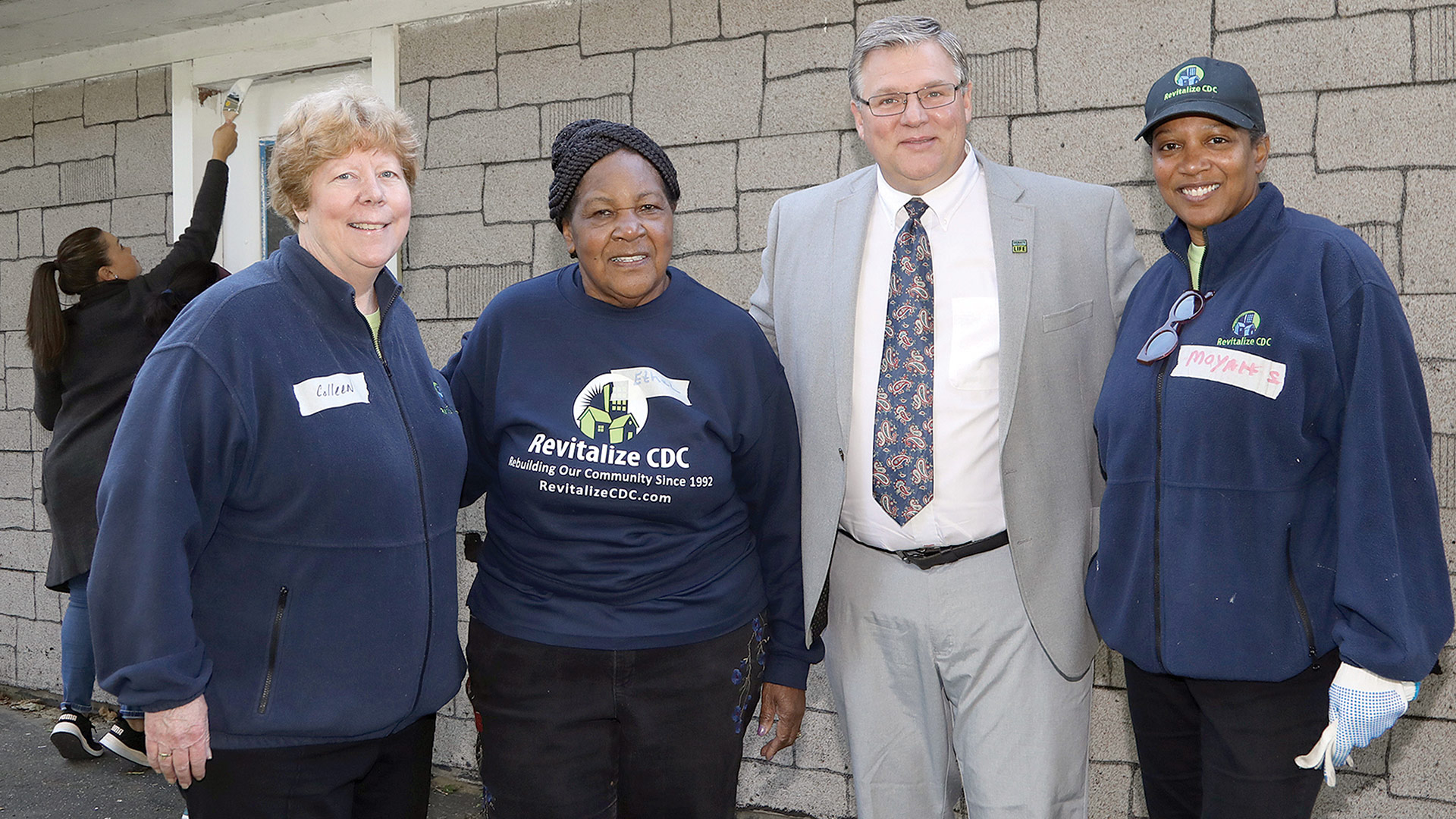
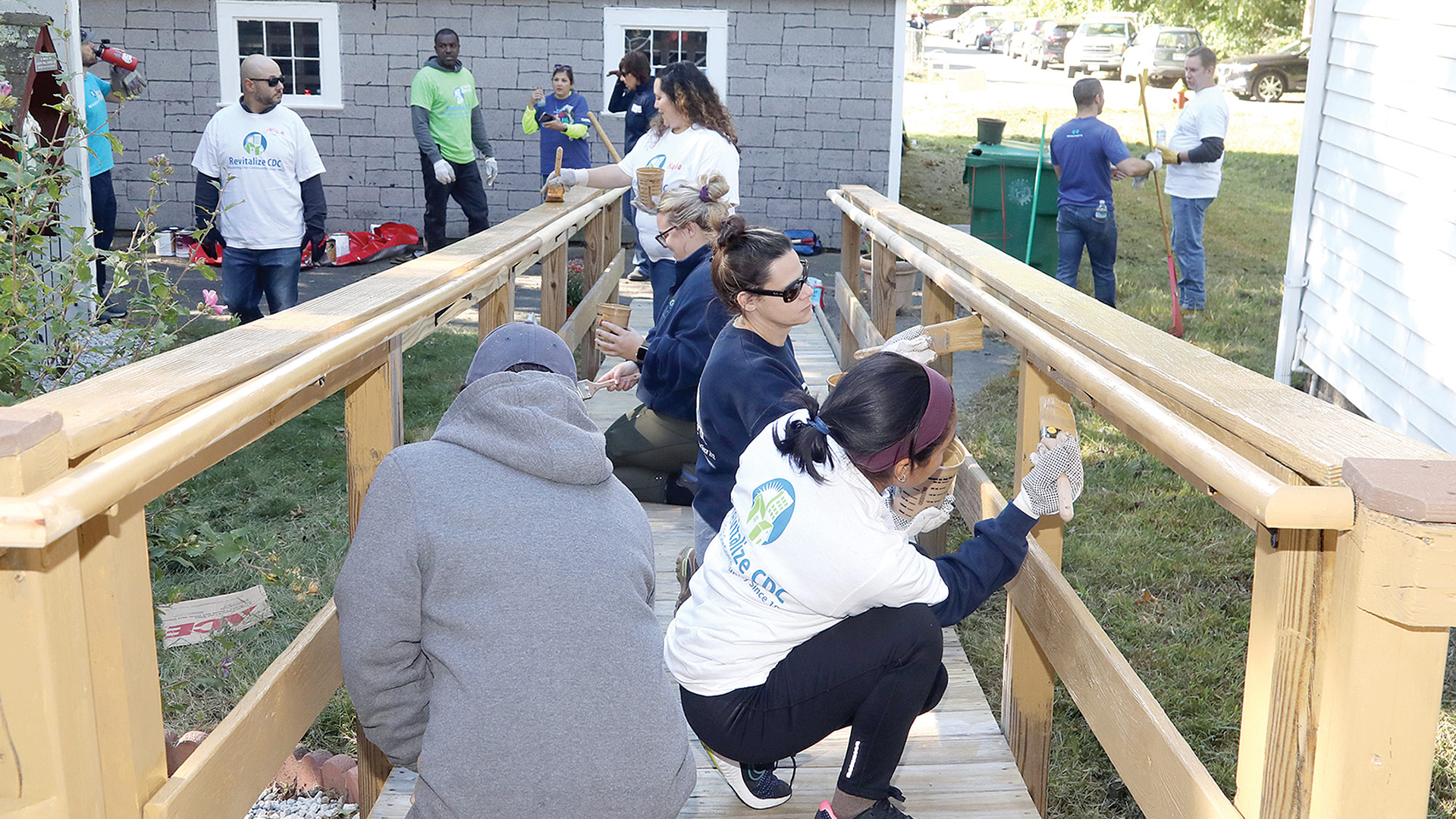

 We are excited to announce that BusinessWest, in partnership with Living Local, has launched a new podcast series, BusinessTalk. Each episode will feature in-depth interviews and discussions with local industry leaders, providing thoughtful perspectives on the Western Massachuetts economy and the many business ventures that keep it running during these challenging times.
We are excited to announce that BusinessWest, in partnership with Living Local, has launched a new podcast series, BusinessTalk. Each episode will feature in-depth interviews and discussions with local industry leaders, providing thoughtful perspectives on the Western Massachuetts economy and the many business ventures that keep it running during these challenging times.